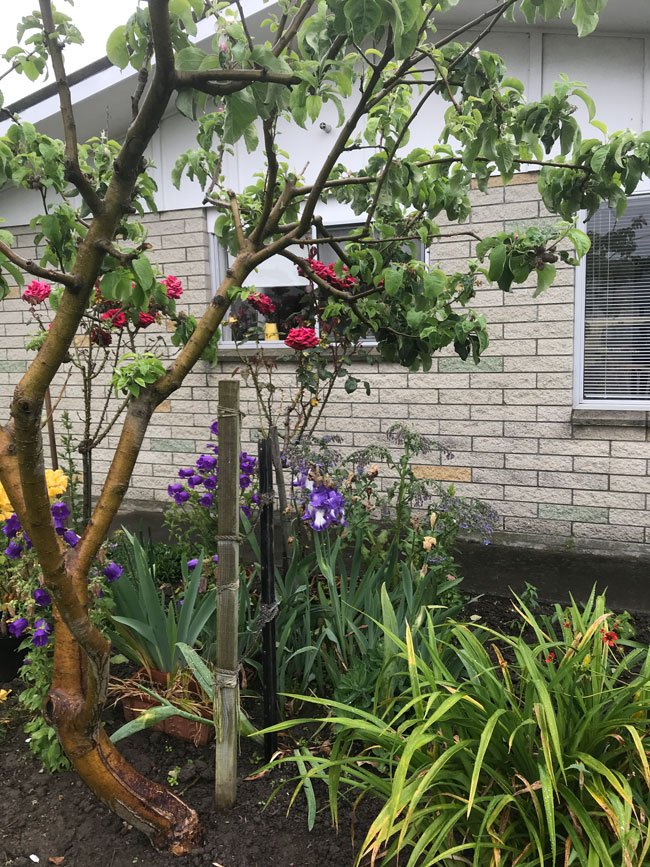Kia ora, I’ve known Adrienne ever since I began teaching at Whitireia but I knew her books before then so it was a thrill to meet her in person. She’s a good friend and colleague and we tend to laugh at the same things which is always a good sign. Here she talks about her writing life and her latest novel The Score…
Story — which comes first — subject, characters, story or place — or other?
With The Score it was the first chapter that came first. Out of the blue. No idea where the idea came from. I had had an idea of doing a collection of connected short stories about a group of people who live in council flats, but that never involved a piano.
I think in general it’s a situation that characters find themselves in that I start from. There’s a novel I’ll publish next year that is about a shooting. It’s come from a real event. I spent two or three years thinking about that situation and those characters (and asking myself whether it was my story to write) before I embarked on it.
But there was another question which was crucial in the writing of that story, and it’s the question to ask of the main character — what does he really want? When I asked that question of the main character, the book took a different direction.
Planning — do you plan your entire book before you write a word?
No. Well, sometimes. With Spirit Writing I did have the story planned entirely before I started writing – I’d written it as an idea for a film that I was asked for, then decided I’d rather use it myself for a novel. But half way through the writing, the story changed course dramatically. I can actually remember sitting there thinking, if this choice is made, the story will go this way, and if that choice is made, the story will go somewhere else entirely.
With The Score the story unfolded over a weekend. But then there was of course a great deal of work to do on it, but the bones of the story were there. I’m torn – part of me thinks that planning a novel entirely before you write it is sensible, and for someone like me it might save a lot of time – but there’s another part of me that would like to just start with a sentence and follow my nose. I remember Maurice Gee talking about one of his novels when he did just that. It’s risky, but it also might deliver something that you’d never normally tap into.
Rituals…
No I don’t have many rituals, because I haven’t had many stretches of time when I write consistently. I guess having a coffee is a bit of a ritual. When I wrote the first draft of The Score, it was over January, and the weather was nice, and every morning I went and wrote outside — with a coffee — and I think about that time with great pleasure.
Rejection — how do you handle rejection?
I can remember early on a couple of times when I felt shattered – I’d expected a lot and of course it didn’t happen. But I’ve really tried to cultivate an attitude of , just send it off and don’t bother too much, and it’s quite useful. I think an absolute bottom-line belief in yourself is pretty useful too. One thing I’ve tried to do with publishers if I’ve sent a large manuscript, is to write and thank them. No matter what they say. Not if it’s a standard little rejection note, but if they’ve taken the trouble to comment, I try to say thanks. After all they don’t have to. And it’s amazing how it defuses things. Quite a long time ago I sent a manuscript to a publisher and they wrote back and said, our reader found this almost unreadable. Well you can’t get much worse than that — but I wrote back and thanked them. NZ’s a small country and I’ve run into that publisher since then and there’s no hard feelings there (and I did eventually publish that ‘unreadable book’ after a lot more work).
Success — where were you when you learned your first piece of work had been accepted by editor or pubisher?
I can’t remember. What happened was that I did a writing course and as a result for the first time in my life I sent some work off various places, and it pretty much all got accepted. And I didn’t know how lucky I was. So I was a bit blase about it. It was only later that I realised how incredibly fortunate I’d been. (But when I was about eight, I used to send things into the Children’s Page in the Evening Post, and there was always that exciting thing when something of yours got published — and they’d give points and maybe if you were lucky you’d get five or six points — and when you got 100 points you got your photo in the paper. I’ve still got my photo).
The Score by Adrienne Jansen is available from bookshops nationwide — if they don’t stock it ask them to order it for you — or from Escalator Press www.escalatorpress.co.nz. $28.00.

